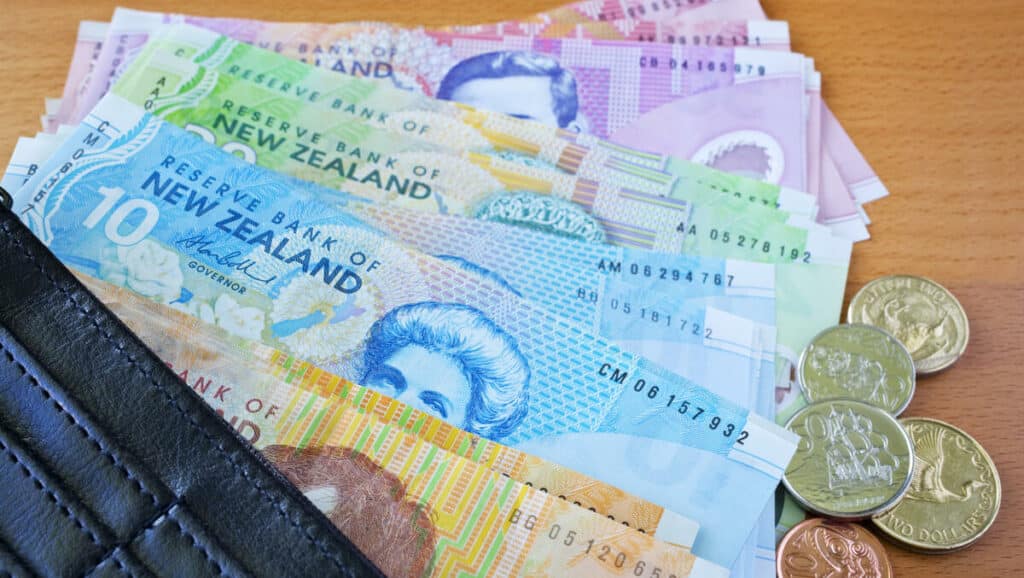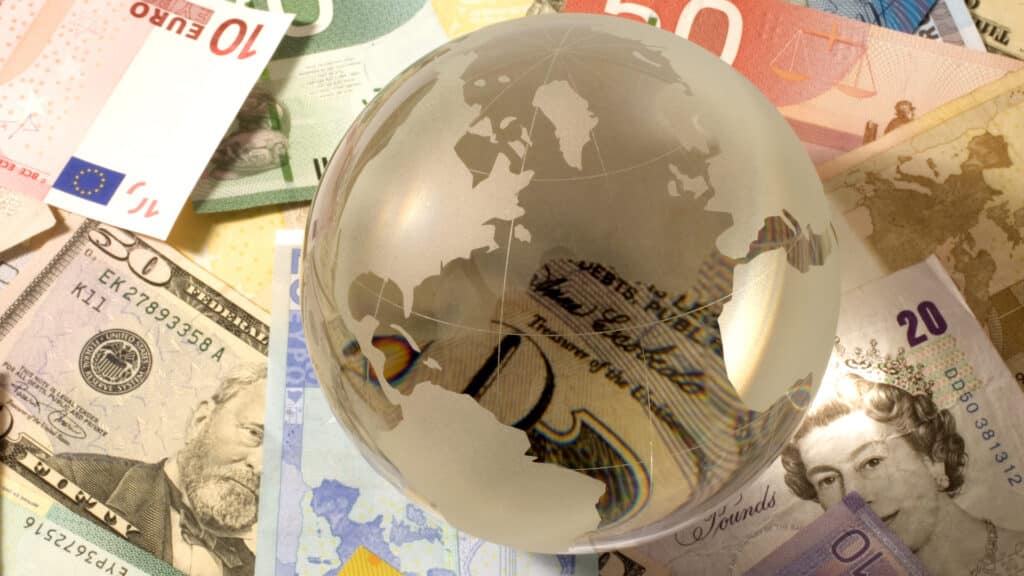Investment options for New Zealand expats living abroad – that will be the topic of today’s article.
Nothing written here should be considered as legal, financial, tax or any other kind of advice.
For any questions, or if you are looking to invest as an expat, you can contact me using this form, or via the WhatsApp function below.
Table of Contents
Introduction

While most people of New Zealand love staying in New Zealand, a significant proportion of them is staying abroad. Of all the countries, most New Zealand expats are located in Australia.
After Australia, they live in the USA, UK, Canada, France, etc. Therefore, we will discuss the investment opportunities for the expats of New Zealand living in those countries.
There may be some other countries with a significant population of kiwis living there, but we have provided the information for the selected countries based on the information gathered.
If you are a New Zealand expat living elsewhere, please approach us to get some detailed information regarding investments. Moreover, you can also acquire financial solutions such as wealth management, financial advice, second passport services, etc., by approaching us.
Investment options for New Zealand expats in Australia:
As we said earlier, most people of New Zealand are located in Australia, and therefore we will start by discussing the investment options for New Zealand expats located over there.
There are 4 major types of investment options for expats dwelling in Australia, which are as follows.
- Property:
According to a Long-term Investing Report, Australian residential investment property offered an average of 8% in returns each year for the last ten years until December 2017.
After struggling for a bit in 2018, the markets of Sydney and Melbourne are said to be rebounding. Both these cities experienced profits in property value of around 5% or more in 2019’s third quarter.
Investing in property is usually a bit expensive and the process is hard depending on your financial situation and the location of the property. Nevertheless, it is a favorite asset class among many people and certainly a part of their financial goal.
Property investments lead to an increase in mortgages, which is now at an average of 55%. This was just 20% in 1993 and we can understand the situation based on this.
Some of the best mortgage service providers in Australia are as follows.
– Greater Bank
– U Bank
– G&C Mutual Bank
- Fixed Income:
Fixed-income assets like government and corporate bonds are generally seen as investment options with stable and reliable returns.
When you are purchasing a bond, you act as a lender where you lend money to the government or any other entity, and they will pay you back with interest.
The interest paid on bonds is offered to you in the form of installments on a regular basis throughout the term of the bond.
Even though fixed income assets are considered non-profitable assets by some investors, making them a part of your investment portfolio allows you to offset any potential losses that occur in other assets.
- Equities (Shares)
Whenever a person talks about investment, the first thing that will pop into your mind is ‘shares’, which are also called ‘equities’. A bunch of shares, or sometimes even a single share, would be referred to as a ‘stock’.
To know more about the types of stocks, stock market and other relevant terms, please click here.
Based on the specific shares you select, purchasing equities like publicly listed shares provide high returns. However, there is also a possibility for significant losses, and therefore, it may be considered a risky asset class while talking about investments.
Shares are easily affected by the fluctuations in the market and result in big gains or losses in the value of your investment. Either you win or you lose, but everything is related to their performance.
As per the data obtained by some investment reports, Australian shares had an average of 4% returns per year up to 2017. However, some sources claim to have an average of up to 8%, yet it depends on the type of stocks you choose.
For instance, it was stated by Yahoo Finance that ‘Costa Group Holdings’ was the worst in the list of ASX200 in 2019. In that year, Costa Group had a drop of 64.1% in its value.
‘Avita Medical’, a stock belonging to the healthcare sector, had a huge gain of 696% in its price, which is quite attractive to lure somebody into these investments.
An important thing to consider is that the past performance of an asset cannot be concluded as a reliable indicator for speculating the future performance, and investors should be highly attentive when selecting shares.
Usually, people pay an experienced investment planner (like us) to take care of such aspects for them.
If you still insist on investing in shares on your own, then some of the best online trading platforms have been made available for New Zealand expats living in Australia.
– CMC Markets (fee for a $15,000 trade is $15)
– IG (fee for a $15,000 trade is $7.50)
– Bendigo Invest Direct (fee for a $15,000 trade is $19.95)
- Savings Accounts
Investment options like savings accounts and term deposits are considered to have a high level of liquidity among all the asset classes. Because of that, they can easily be converted to cash and acquired the name as ‘Cash’ asset class.
Opting for cash assets can be the safest form of an investment, yet your invested money typically generates the lowest possible returns.
According to some research in Australia, cash assets offered an average of 3.6% in gross returns per annum over 10 years, which may not be considered ideal returns as there is an inflation of around 1% to 2% per year.
It should be kept in mind that some banks and institutions offering term deposits and savings accounts charge an early withdrawal fee or reduce the actual interest they pay when you decide to withdraw your money prior to its maturity.
Some of the best savings accounts in Australia have been given below, which provide the best interest rates on deposits.
– Fast Track Starter (only for people belonging to 14 to 24 years of age)
Bank: Bank of Queensland (BOQ)
Base Interest: 0.05%
Bonus Rate: 2.95%
Total Interest: 3%
– Fast Track Saver
Bank: Bank of Queensland (BOQ)
Base Interest: 0.05%
Bonus Rate: 1%
Total Interest: 1.05%
– Boost Saver
Bank: Virgin Money
Base Interest: 0.10%
Bonus Rate: 1.10%
Total Interest: 1.20%
– Hero Saver
Bank: Bankwest
Base Interest: 0.01%
Bonus Rate: 0.69%
Total Interest: 0.70%
– Grow Saver
Bank: Virgin Money
Base Interest: 0.10%
Bonus Rate: 0.55%
Total Interest: 0.65%
Note – base rates are the actual interest rates made available for all the individuals, whereas bonus interest rates are offered upon fulfilling certain terms and conditions.

Investment options for New Zealand expats in the USA:
To begin with, there are no citizenship requirements for a person to own stocks of US companies or get involved with any other types of investments.
Nevertheless, there are additional requirements that are to be fulfilled by non-U.S. investors before they start investing in U.S. assets because expat investors and foreign holders of U.S.-based assets should follow the U.S. laws that are intended to protect U.S. interests.
Some trading platforms may ask expats to provide additional types of identification so that they can comply with the firm’s investment policies.
As with any other country, expats living in the US should concentrate on beating inflation and coping with the taxes so that preserve the value of their investments.
To make it simple for you to understand, an individual cannot avoid purchasing power erosion unless he/she opts for investing in risky instruments.
- Risk-free assets:
Risk-free investments are those, which we described as cash assets and fixed income assets, which usually include savings accounts and government debts.
In the US, deposits are protected by the Federal Deposit Insurance Corporation (FDIC) for an amount of up to $250,000.
If you opt for an easy-access savings account, the returns have a very low yield of around 0.1%. Term deposits on the other hand are more likely to offer a higher yield, however, the rates differ from one bank to another around 0.1 to 1%.
Even after gaining such interest rates, the profits can’t cope with the inflation (usually 2% on average). In layman’s terms, the actual value of your investment in a savings account is expected to erode if you rely on US savings accounts only.
The case is the same with inflation if you opt for investing only in US Government debts unless the market experiences a change and requires even lower interest rates in the future.
If that happens, you can make capital gains from your asset if you resell your US Government bond or any similar fixed income asset.
Keeping aside the taxes and capital gains, US Treasury bonds have been failing to beat inflation since 2013, unless their maturity period is more than seven years.
This concludes that you are required to hold your savings for a period of at least seven years if you want an asset such as a government debt to offer returns that allow you to cope with inflation.
- Securities:
US securities such as equities also happen to be a lucrative investment option for most expats living there. Nevertheless, there are some fees and costs that are to be considered carefully while trading with US securities.
Given below are some of the main costs that an investor should be aware of:
– Commissions
Usually, a trading platform or a brokerage firm charges fees called commissions while letting investors purchase securities on their platform, which can either be a flat rate or per share.
– Management costs
– Additional trading and non-trading costs
Nowadays, online brokerages allow investors to invest in shares at lower costs compared to what traditional brokers charge.
There are three major indices in the US stock market namely: the Dow 30 (DJIA), the S&P 500, and the Nasdaq 100.
The best brokerages in the USA in 2021 that offer you a wide range of services related to investing in stocks, ETFs, and investment vehicles are as follows.
– Interactive brokers
– Fidelity
– Zacks Trade
– TD Ameritrade
– E*Trade
While investing in the stock market, you must not get carried away by your emotions. You must learn to control and overcome them instead of letting them control you.
Services acquired from a qualified wealth manager or investment planner (like us) can come in handy for you in this matter.
- FX markets
Being an expatriate from New Zealand, you don’t necessarily have to be a speculator and watch the show. If you keep some of your money aside in a currency, which you would eventually spend in the future, you won’t be affected by the FX fluctuations.
If not, you are simply doing something called a currency bet. You can be able to gain a lot of money with the help of such currency bets, and at the same time, a lot of money can be lost.
Other than that, FX exposure can also be decreased (or increased) with the help of purchasing some relevant derivative products like FX options, swaps, or forward contracts.
Derivatives are known to be a highly effective whole being quite complex, especially for people who are not familiar with such aspects. It is highly suggested to acquire professional advice before making any hasty decisions.
The majority of the people lose their invested money when they opt for investing in such derivative products, and therefore, people should be more attentive while investing hard-earned money in them.
There are some other alternative investment vehicles such as peer-to-peer lending, property investments, cryptocurrencies, but we only concentrated on some of the important and beneficial investment opportunities in this article.
Investment options for New Zealand expats in the UK:
Inflation is the most important that should be considered in the UK as well, which is generally around an average of 2%.
- Savings Accounts:
Traditional savings accounts offer a low yield of around 1% while being subject to taxes. Nevertheless, you can search for a bank or a financial institution offering higher returns on monthly savings.
Not only that, but buy online banks are also known to offer higher yields to depositors.
- GILTs
A ‘GILT’ is nothing but a UK Government bond, which can also be called a ‘gilt-edged security’ or ‘gilt-edged certificate’.
The returns on these are usually very low because of the high demand and the monetary policy. Interest is paid gross on these investments, but the returns are generally subject to income tax.
- NS&I
‘National Savings & Investments’ products, which are also referred to as ‘NS&I’ products, are backed by the UK Treasury. Some of the NS&I products are exempt from taxes while some are subject to taxation.
- ISAs
Individual Savings Accounts (ISAs) are savings accounts that are free from taxes in the UK, with the help of which you can deposit a specified amount of money every year.
Cash ISAs are generally similar to traditional savings accounts while being tax-free and offering higher returns of around 2%. Cash ISA yields are not a good choice to beat inflation, yet they can allow an individual to cope with the purchasing power erosion.
A stocks and shares ISA is tailored for investment purposes; however, it isn’t always possible for an individual to invest directly in shares. In order to open an ISA, approval from an HMRC-approved ISA manager is required.
Even though ISAs are exempt from taxes in the UK, there might be taxes applicable to them in New Zealand when you try to repatriate. You should always seek the assistance of an investment planner before you can proceed with such financial matters.
- Securities:
When you want to trade with securities in the UK, you must pay attention to four types of costs, which are as follows.
– Stamp Duty Reserve Tax, which is imposed on the UK companies’ share purchases at a rate of 0.5%.
– Commission fees.
– PTM levies (Panel of Takeovers and Mergers), which is £1 for all the transactions over £10,000.
– Other additional fees charged by brokerages such as management fees, trading costs, non-trading costs, etc.
Some of the best brokerages in the UK by the time of writing this article are as follows.
– Interactive Brokers
– IG
– eToro
– Capital.com
– Pepperstone
Expats from New Zealand can also get involved with various other investment opportunities such as properties, cryptos, peer-to-peer lending, etc., yet we haven’t listed them as they are a bit more complex or a bit less profitable.
Investment options for New Zealand expats in Canada:
The inflation in Canada is around 2% since 1991, which used to exceed 5% prior to that period.
- Risk-free assets:
Risk-free assets, as we know, are savings accounts and government debts. In Canada, investors’ deposits are protected by the Canada Deposit Insurance Corporation (CDIC) for an amount of up to $100,000.
Easy-access online savings accounts come with low yields ranging around 1.5%, which occasionally matches inflation. Savings accounts provided by some major banks might provide you lower returns.
Term deposits, on the other hand, might offer higher yields which may not exceed by that much. Moreover, term deposits won’t allow the individuals to make an early withdrawal or allow them to do so by charging additional fees or lowering the interest rates.
If we talk about the Canadian Government debt, an individual may or may not succeed in preserving the actual value of their savings.
Government bonds in Canada are highly vulnerable to market fluctuations. The value of bonds increases when the market asks for a lower yield, and they decrease when the market asks for a higher yield.
Similarly, there is a scope for capital gains if you anticipate the interest rates to get reduced in the future. If rates experience an increase, then you would most likely lose your investment which can be directly through in the form of a capital loss, or indirectly via failure to profit from the higher interest rates in the future.
- Tax-free accounts:
Tax-Free Savings Accounts (TFSAs) are a good choice to save for your retirement. The investment income obtained within a TFSA is tax-free, and it is the same for withdrawals as well in Canada.
Nonetheless, contributions should be made from your income after taxes have been paid, and they should not exceed a certain amount.
With the help of a TFSA, an individual can invest in a wide range of investments vehicles like bank deposits, mutual funds, bonds, etc.
- Canadian Securities:
One should be wary of all the costs and fees involved with making an investment in securities before hastily investing in them. In Canada, stockbrokers are often referred to as “Registered Representatives”.
The main index in Canada is the S&P/TSX and most of the Canadian shares are known to offer a dividend yield on an average of 4%.
Some of the best online brokerage firms in Canada by the time of writing this article are as follows.
– Questrade
– Qtrade Investor
– Interactive Brokers
– TD Direct Investing
– CIBC Investor’s Edge
Investment options for New Zealand expats in France:
Unlike many other countries, France has a below-average inflation rate which ranges from around 0.7% to 0.9%. This allows expats in New Zealand expats in France to make profits on investments that can easily cope with inflation.
- Savings Accounts:
Savings accounts, come under the risk-free asset class. In France, deposits made into savings accounts are protected by the Deposit Guarantee Fund (Fonds de Garantie des Dépôts et de Résolution) for an amount of up to €100,000.
This protection covers various types of instruments such as current accounts, savings accounts, and term deposits. However, such investment vehicles should be denominated in Euros or any other EEA currency.
In France, Easy-access savings accounts come with a low yield of around 1.8%, which is actually above inflation. It should be taken into consideration that this available interest is gross interest, and therefore taxes are applicable (somewhere less than 59%).
- Regulated Savings Products:
Any expat living in France should consider the regulated financial products as these are made available by almost all of the French banks, anyhow, an individual can only have access to one product of each type at a time.
Some of the prominent regulated savings accounts in France are as follows.
– Livret A (interest rate of 1.25% and the maximum limit is €22,950)
– LDD (interest rate of 1.25% and the maximum limit is €12,000)
– LEP (interest rate of 1.75% and the maximum limit is €7,700)
– Livret Jeune (interest rate of 2.5% to 4% and the maximum limit is €1,60)
- Bonds:
After discussing the features of regulated savings products, expatriates from New Zealand should think again before opting for bonds. Adding to that, returns may be somewhat inadequate and are taxable up to 59%.
Bonds in France offer yields of around 2.2% for a 10-year bond and 3.3% on a 30-year bond.
Other than that, you can opt for a Euro-zone Government Bond, where there are safe bonds such as German bunds and risky ones such as Italian Government debts, and the risky bonds might offer returns higher than 3.5% on a 10-year bond.
- Securities:
The major index of France is called CAC40, which usually offers a dividend yield of around 4% or more.
Some of the best brokerage firms available in France in 2021 are as follows.
– Interactive Brokers
– Saxo Bank
– Degiro
– TradeStation
– Tastyworks
Other places:
Some expats belonging to New Zealand are also located in countries like Singapore, Hong Kong, etc. However, we are not able to cover those aspects as we mainly concentrated on the areas where Kiwi expats are located mostly.
Nevertheless, an expat from New Zealand or any other country can opt for offshore investments, which simply means investing in other countries.
Yes, you have heard it right! You can be from a country, reside in another country, and still opt for making an investment in some other country.
There are certain countries that could be tax havens or offer lucrative investment opportunities for foreigners. In such a case, you can make an investment in such a country and reap profits as much as you can.

How we help you:
Well, you may not be able to take all the necessary decisions related to investments by yourself. One should always remember that investments are quite complex and should be done right.
If decisions related to investments are done hastily, a person could lose all the money they’ve invested, and we certainly wouldn’t want that to happen.
Based on some extensive research, most financial experts suggest that a person can gain more profits from their investments only when they diversify their portfolio in an efficient manner.
Having years of experience in the particular field, we got you covered and could help you with your investments in such a way that you would gain more profits than you usually do.
If you are an individual having an ultra-high-net-worth or a high net-worth, you won’t probably have the necessary time to take care of your financial aspects and investment needs.
In such cases, we can provide you with the best-in-class wealth management and financial planning services, which allow you to grow your wealth.
Apart from that, you can also opt for investing a fixed amount as low as $200 to $500 on a monthly basis and still opt for the investment-related services offered by us.
Not convinced? Still want to take care of your investments on your own, yet you don’t have the necessary knowledge to begin?
Don’t worry, you can opt for the services offered by Adam Fayed Academy and learn the art of investing so that you can do it on your own.
That being said, we hope that you were able to find all the relevant information with the help of this article and we wish for you to have a successful investment career that offers huge profits from all of your assets.
Pained by financial indecision? Want to invest with Adam?

Adam is an internationally recognized author on financial matters, with over 282.1 million answers views on Quora.com and a widely sold book on Amazon



